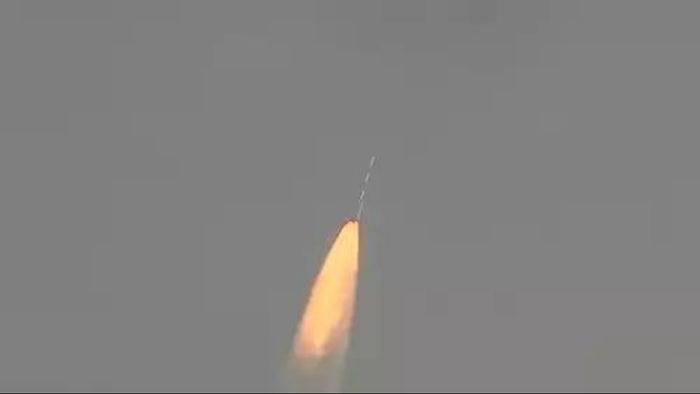ISRO launches X-ray polarimeter satellite to study black holes
On January 1st, 2024, the Indian Space Research Organisation (ISRO) achieved a significant milestone by launching its first X-ray Polarimeter Satellite (XPoSat) aboard a PSLV-C58 rocket.

- Jan 01, 2024,
- Updated Jan 01, 2024, 9:23 AM IST
On January 1st, 2024, the Indian Space Research Organisation (ISRO) achieved a significant milestone by launching its first X-ray Polarimeter Satellite (XPoSat) aboard a PSLV-C58 rocket from the Satish Dhawan Space Centre (SDSC-SHAR) in Sriharikota.
This mission represents India's inaugural dedicated scientific satellite designed to delve into the mysteries of intense X-ray sources such as black holes.
The XPoSat carries two primary scientific payloads in a low Earth orbit. The Polarimeter Instrument in X-rays (POLIX), developed in collaboration with the Raman Research Institute (RRI), is tasked with measuring the degree and angle of polarization of medium-energy X-rays ranging from 8-30 keV originating from astronomical sources. POLIX is expected to observe about 40 bright astronomical sources during the XPoSat mission's planned lifetime of approximately 5 years.
Also Read: Stray dog tries to communicate with passengers in moving train
Additionally, the X-ray Spectroscopy and Timing (XSPECT) payload, built by the U R Rao Satellite Centre (URSC), will provide valuable spectroscopic information in the energy range of 0.8-15 keV. XSPECT is designed to monitor long-term spectral state changes and temporal variations in soft X-ray emissions, enhancing our understanding of various celestial phenomena.
The launch of XPoSat is not only a testament to ISRO's growing capabilities in space exploration but also places India as the second country after the United States to have a space-based observatory focused on studying black holes. The NASA Imaging X-ray Polarimetry Explorer (IXPE) mission, launched in December 2021, was the first of its kind, and now XPoSat adds a new dimension to the global efforts in X-ray astronomy.
ISRO's XPoSat mission aims to break new ground in the field of astrophysics by providing insights into the radiation mechanisms and geometries of celestial sources, thereby contributing to the broader scientific understanding of the universe's most enigmatic objects.